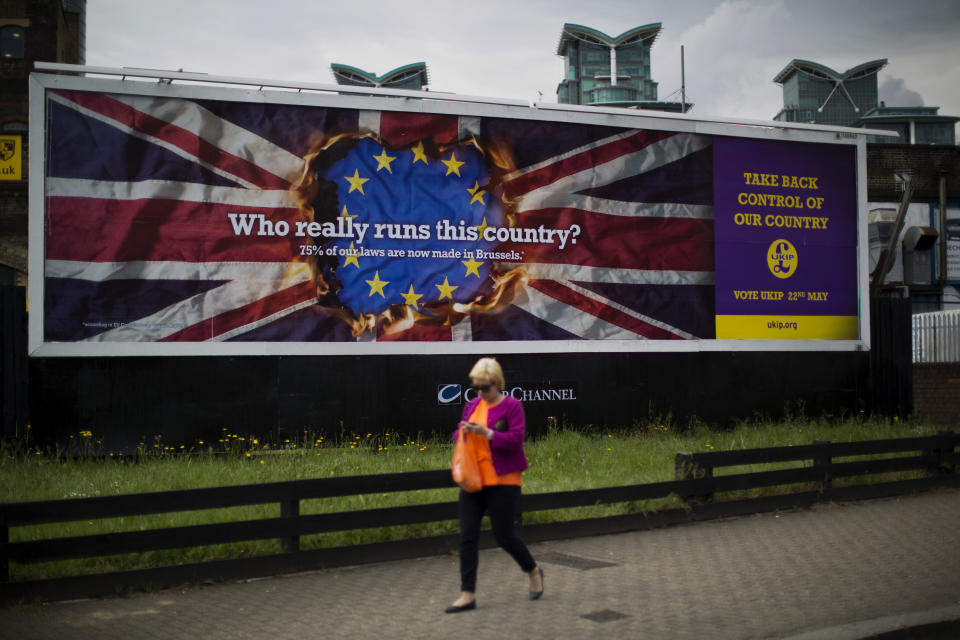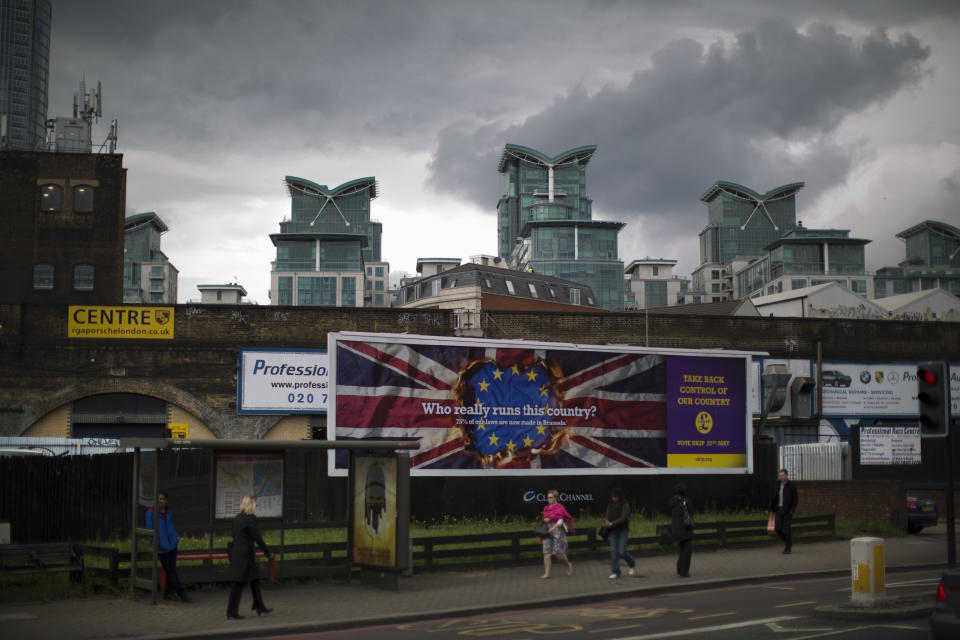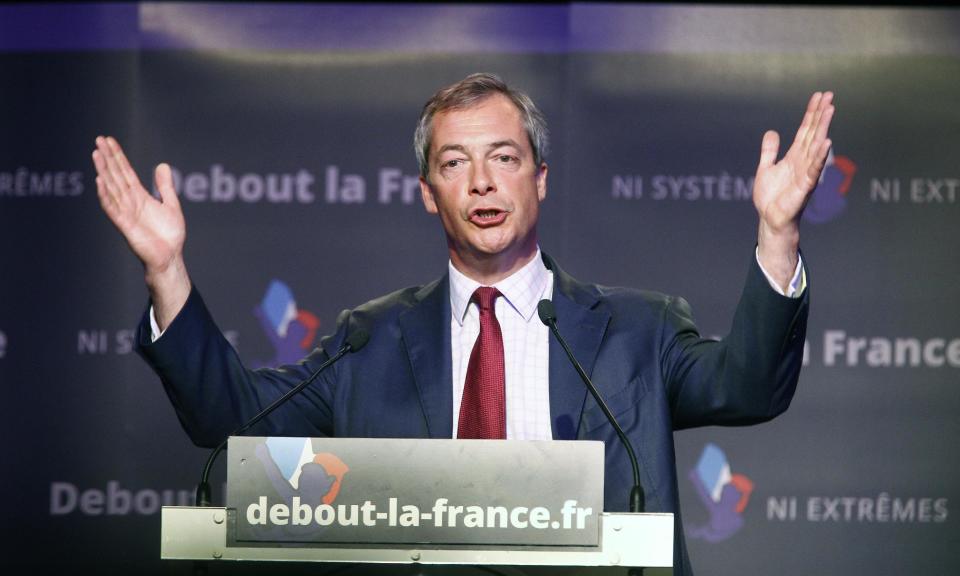British anti-EU party focuses on immigrant threat
LONDON (AP) — Britain's U.K. Independence Party launched its European election campaign Tuesday with a series of billboards carrying a stark message: They are coming to take your job.
"They" are workers from other European Union countries, who have the right to live in Britain.
One billboard from the rising Euroskeptic party depicts a construction worker begging for change under the headline "EU policy at work." Another says 26 million people in Europe are looking for work, adding: "And whose jobs are they after?"
Party leader Nigel Farage said the posters were "a hard-hitting reflection of reality."
Others called them alarmist and xenophobic. Labour Party lawmaker Mike Gapes accused UKIP of running "a campaign designed to sow fear and animosity and hatred towards immigrants." Conservative legislator Nicholas Soames, grandson of wartime Prime Minister Winston Churchill, called the ads "deeply divisive, offensive and ignorant."
Free movement of labor is a central principle of the 28-nation EU bloc. Census data shows that about 2 million people from other EU countries live in Britain. That is only slightly more than the number of Britons living elsewhere in Europe — a fact UKIP tends not to mention.
UKIP's aim is to pull Britain out of the EU, and its message is finding an increasingly receptive audience among Britons disillusioned with mainstream parties.
One billboard image, showing the blue and yellow EU flag burning a hole in the Union Jack under the slogan "Who really runs this country?" appeals to a frustration with European bureaucracy felt across the continent.
"We're not anti-European," Farage said Tuesday. "We want a Europe of nation states that live together and trade together. And that's why it's not just UKIP. There are other Euroskeptic parties doing well across the north of Europe."
The party, which has no seats in Britain's House of Commons, hopes to make a breakthrough in the May 22 elections for the European Parliament, where it currently has nine of Britain's 73 seats. Some polls suggest it could receive more votes than any other British party.
And it has increasingly deep pockets. The billboard campaign is funded by a wider 1.5 million pound ($2.5 million) donation from businessman Paul Sykes.
Prime Minister David Cameron once called UKIP a party of "fruitcakes and loonies," and its largely untested politicians are prone to gaffes. One European lawmaker called women in his party "sluts," while a UKIP councilor blamed Britain's winter floods on gay marriage.
But its growing popularity has Cameron's Conservatives worried. He has promised to slash immigration and says he will hold a referendum on EU membership if the Conservatives win the May 2015 national election.
Matthew Goodwin, a Nottingham University political scientist and co-author of "Revolt of the Right," said the billboards showed UKIP appealing to its core supporters: "left behind" voters who feel battered by the recession and austerity that followed the 2008 economic crisis.
He said the party's popular surge should worry left-of-center Labour as well as the Conservatives.
"UKIP are winning over financially struggling, pessimistic, working-class voters who should be supporting the traditional defender of equality and redistribution, i.e. Labour," Goodwin said.
___
Follow Jill Lawless at http://Twitter.com/JillLawless




